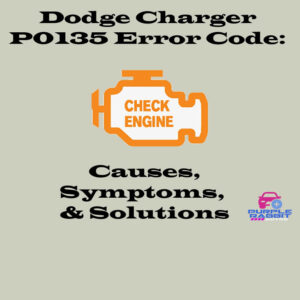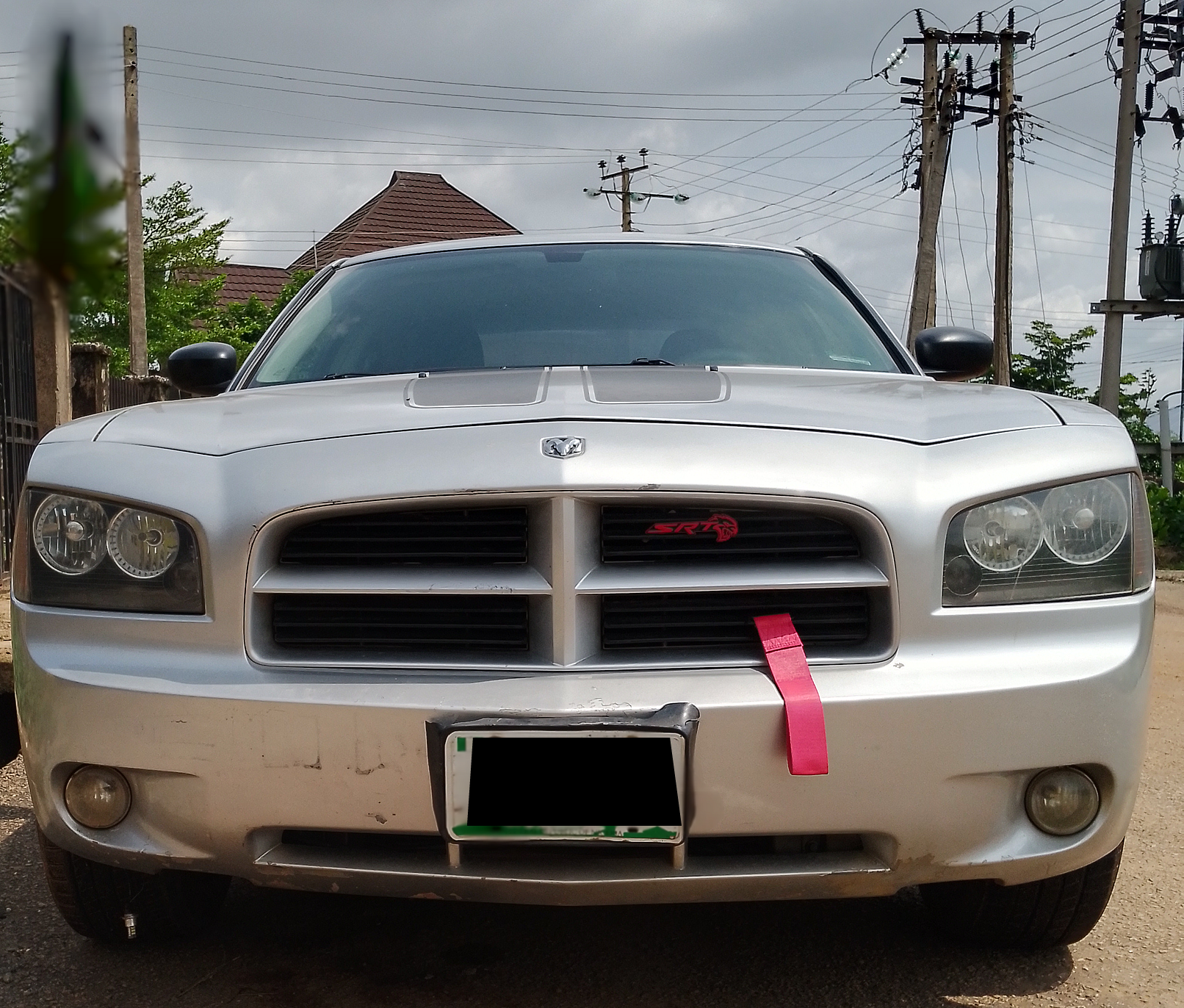Dodge Charger P0135 Error Code: Causes, Symptoms, and Solutions
If you’re a Dodge Charger owner and recently encountered the P0135 error code, you’re likely wondering what it means and how to resolve it. The P0135 code refers to an issue with the oxygen sensor heater circuit, specifically Bank 1 Sensor 1. Although this may seem complicated, we’ll break it down for you, using clear steps to help you fix the problem.
What is the Dodge Charger P0135 Error Code?
To begin with, let’s understand what the P0135 error code means. This code indicates a malfunction in the heating element of the oxygen sensor in Bank 1, Sensor 1. In simpler terms, the car’s computer (ECU) is detecting an issue with the oxygen sensor’s ability to reach its operating temperature quickly.
Why does this matter? The oxygen sensor plays a crucial role in ensuring your engine runs efficiently. It helps control the air-fuel mixture by monitoring oxygen levels in the exhaust gases. Therefore, when this sensor malfunctions, your car’s performance and fuel efficiency can suffer.

Symptoms of Dodge Charger P0135 Code
Now, you may be wondering how this issue manifests in your vehicle. Although your Charger may still run, it will likely show some of the following symptoms:
- Check Engine Light: This is the most noticeable sign. Once the P0135 code is triggered, the check engine light on your dashboard will illuminate.
- Poor Fuel Efficiency: When the oxygen sensor heater circuit fails, the sensor takes longer to reach its optimal temperature, causing inaccurate air-fuel mixture readings.
- Rough Idling: If your Dodge Charger has difficulty maintaining a smooth idle, it could be another sign of a faulty oxygen sensor.
- Failed Emissions Test: Since oxygen sensors are essential for controlling exhaust emissions, this issue could cause your vehicle to fail an emissions test.
What Causes the P0135 Error Code?
So, what leads to this error code? Several factors could contribute to a P0135 code in a Dodge Charger. The most common causes include:
- Faulty Oxygen Sensor: Over time, oxygen sensors can wear out, causing the heater circuit to malfunction.
- Damaged Wiring or Connectors: The sensor’s wiring may be corroded, frayed, or otherwise damaged, disrupting its functionality.
- Blown Fuse: A blown fuse in the oxygen sensor circuit can also trigger this error code.
- Bad ECU: In rare cases, a malfunctioning engine control unit (ECU) can lead to this code appearing.
How to Fix the Dodge Charger P0135 Error Code
Fortunately, the P0135 error code is typically easy to fix. Follow these steps to get your Dodge Charger back in top condition:
- Check the Oxygen Sensor: The first step is to inspect the oxygen sensor and its wiring. If the sensor is old or damaged, it will likely need replacing.
- Inspect Wiring and Connectors: Make sure to check the wiring and connectors for any signs of corrosion or damage. If any issues are found, repair or replace the damaged parts.
- Check Fuses: If the wiring is intact, inspect the relevant fuses. If a fuse is blown, replace it.
- Replace the ECU (if necessary): If none of the above fixes resolve the issue, you may have a faulty ECU, which will need professional replacement.

Can You Drive with a P0135 Code?
Although your Dodge Charger may still be drivable with a P0135 code, it’s not recommended to ignore it for long. Driving with this issue can result in poor fuel economy, increased emissions, and even long-term engine damage if left unresolved.
Final Thoughts
In conclusion, the Dodge Charger P0135 error code signals a problem with the oxygen sensor heater circuit in Bank 1 Sensor 1. While this issue can affect performance, it’s generally easy to diagnose and fix by inspecting the sensor, wiring, fuses, or even the ECU. By addressing this problem promptly, you can ensure that your Charger continues to run smoothly and efficiently.
